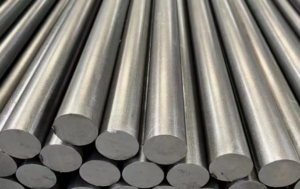Tool steel holds a pivotal position in the vast realm of metallurgy, due to its unparalleled strength, durability, and wear resistance. As a seasoned expert in the field of metallic materials from Sino Special Metal, I am delighted to delve into tool steel classifications, providing a comprehensive guide for fellow material enthusiasts and professionals.

Tool Steel Classifications: A Comprehensive Guide
Introduction to Tool Steel
Tool steel, a subset of carbon and alloy steels, is specifically designed for applications that require high hardness, toughness, and wear resistance. It is widely used in the manufacturing of cutting tools, dies, punches, and other tools that undergo significant mechanical and thermal stresses. The diverse classifications of tool steel reflect their unique chemical compositions, heat treatment processes, and intended applications.
Tool Steel Classifications:
- Water-Hardening Steels
Water-hardening steels, also known as non-alloy steels, are the most basic type of tool steel. They contain a high carbon content (around 1.5% to 2.0%) and are characterized by their ability to harden rapidly when quenched in water. However, they are prone to distortion and cracking due to their high sensitivity to quenching stress. Water-hardening steels are suitable for applications that require moderate hardness and wear resistance, such as hacksaws and woodworking tools.
- Oil-Hardening Steels
Oil-hardening steels, also referred to as low-alloy steels, contain small amounts of alloying elements such as manganese, chromium, and tungsten. These additions improve the steel’s hardenability, allowing it to achieve higher hardness levels while minimizing distortion and cracking. Oil-hardening steels are quenched in oil, which provides a slower cooling rate compared to water. They are commonly used in the manufacturing of cutting tools, dies, and punches due to their excellent wear resistance and toughness.
- Air-Hardening Steels
Air-hardening steels, also known as high-speed steels (HSS), are a class of tool steel that can achieve high hardness levels even when cooled in air. They contain significant amounts of tungsten, molybdenum, chromium, vanadium, and cobalt, which enhance their hardness, toughness, and red hardness (the ability to maintain hardness at elevated temperatures). Air-hardening steels are ideal for applications that involve high cutting speeds and heavy loads, such as machining operations on tough materials.
- Hot-Work Tool Steels
Hot-work tool steels are designed to withstand high temperatures and thermal cycling during service. They contain alloying elements such as chromium, molybdenum, and vanadium, which provide excellent hot hardness and resistance to thermal fatigue. Hot-work tool steels are used in the manufacturing of dies, punches, and other tools that are exposed to high temperatures during the forming and forging of metals.
- Cold-Work Tool Steels
Cold-work tool steels are used in applications that involve cutting, shearing, blanking, and other cold-working operations. They are characterized by their high hardness, wear resistance, and dimensional stability. Cold-work tool steels contain alloying elements such as chromium, molybdenum, and vanadium, which enhance their properties for cold-working applications.
Selection Criteria for Tool Steel
The selection of tool steel depends on various factors, including the type of application, the material being worked on, the cutting speed, and the desired tool life. It is crucial to consider the hardness, toughness, wear resistance, and heat resistance of the tool steel to ensure optimal performance in the intended application.
Conclusion
Tool steel is a crucial material in the manufacturing industry, and its diverse classifications reflect the diverse needs of modern manufacturing processes.
Thank you for reading our article and we hope it can help you to have a better understanding of the Tool Steel Classifications. If you are looking for tool steel suppliers and manufacturers online now, we would advise you to visit Sino Special Metal.
As a leading supplier of tool steels from Shanghai China, Sino Special Metal offers customers high-quality tool steel products at a very competitive price.




